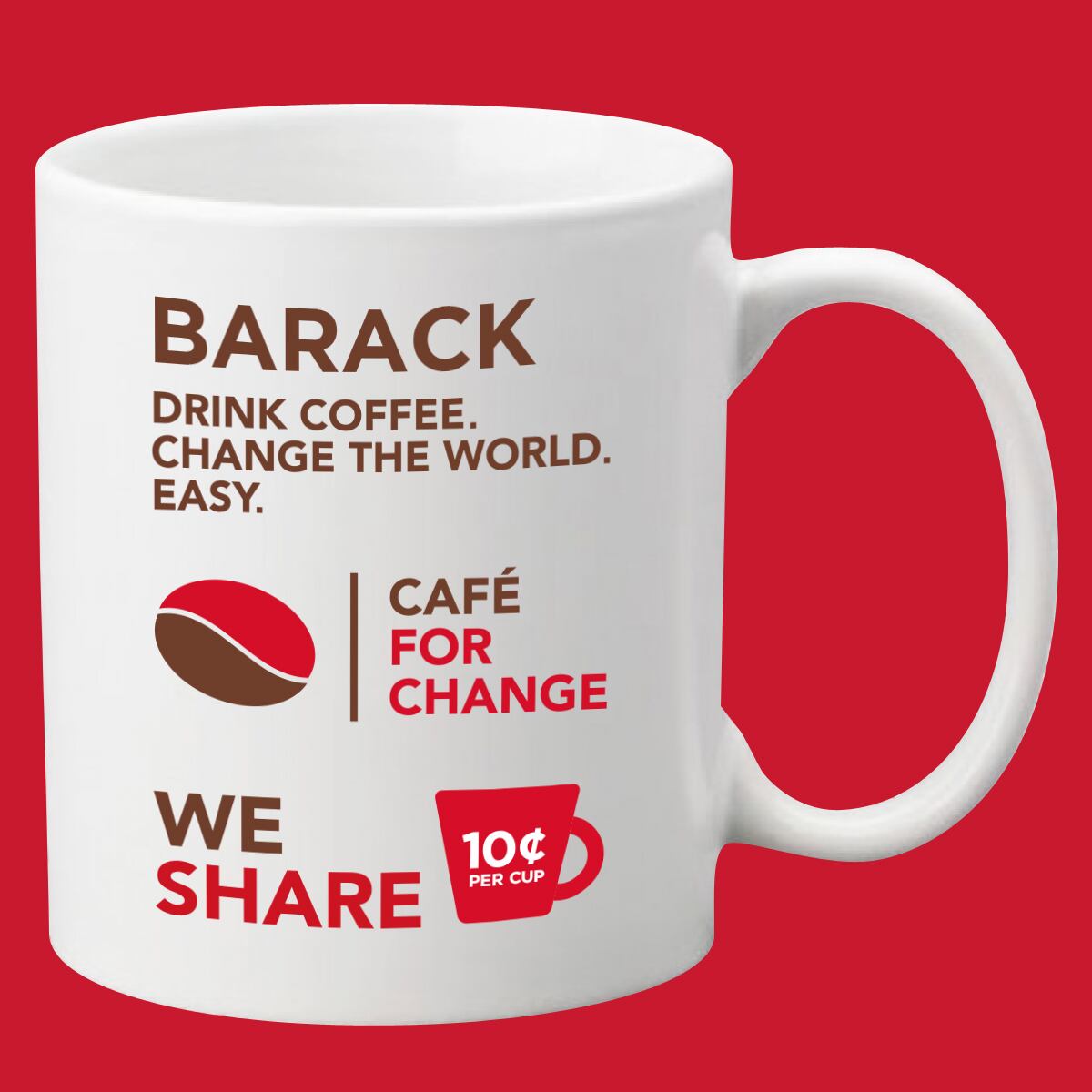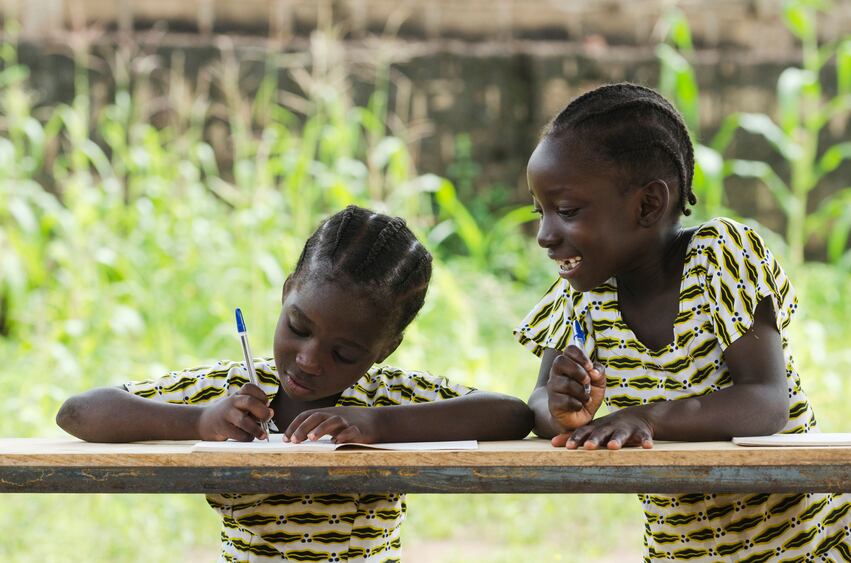Cacao for Change, a sub-branch of Cafē for Change, hopes the US president and the United Nations secretary general will lend their support for the organization’s WeShare system and ‘10CentsPerCup’ campaign.
WeShare system
Under the proposal, retailers would charge consumers $0.10 more for every ‘cup’ of coffee, tea or chocolate. This money would be collected by WeShare – a platform of member companies, administered by an independent board with an audit system.
WeShare would then distribute funds to farmers through farmer associations and cooperatives.
‘Poverty light’?
Cacao for Change founder Fernando Morales-de la Cruz said in his letter to the UN secretary general that less than $0.01 per cup of chocolate, tea and coffee helps to reduce poverty in rural regions that produce the commodities.

He alleged fair trade premiums were “insignificant and unacceptable” and perpetuate “a cruel form of poverty-light”.
He told ConfectioneryNews: “If you pay below or at the market price, you keep people in poverty… Not even 1% of cocoa consumed provides a living wage and the means to end poverty.
“We know the price should double at least to pay a living wage.”
Higher premiums paid for by consumers
Departing Fairtrade CEO Harriet Lamb and Mars’ head of cocoa procurement and World Cocoa Foundation (WCF) chairman Barry Parkin have previously said cocoa farmer income may need to double or even quadruple for the sector to be sustainable.
“Tripling the income of farmers is a beautiful thing to say, but you are not taking them out of poverty,” Morales-de la Cruz told this site.
Certified cocoa through organizations such as UTZ Certified, Fairtrade and Rainforest Alliance is typically sold at a premium of around $150-$200 per metric ton on top of the market price.
Cacao for Change says the premium should be 30 times higher ($4,500-$6,000), tripling the current market price in the London and New York future markets.
Under WeShare, the premium would not be paid directly by traders or manufacturers.
Instead, WeShare would distribute funds to cooperatives and farmer associations after collecting the money from retailers, which charge $0.10 more per cup.
“This is not charity,” said Morales-de la Cruz. “This is compensation.”
Traceability and disorganized farmers
The Cacao for Change founder said sophisticated systems now exist to trace a manufacturers’ cocoa supply, so individual farmers could benefit from premiums collected at retail level.
Industry estimates suggest around 70% of cocoa farmers are not part of a cooperative or association.
Morales-de la Cruz said if these ‘disorganized’ farmers knew there were premiums payments to be earned, they would have an incentive to form credible cooperatives or associations that can administer the payments.
Would consumers pay?
He argued consumers would be willing to pay the $0.10 extra and dismissed suggestions it could lead to reduced consumption, harming cocoa demand for farmers.
“10 cents in Europe is insignificant for a consumer if that means paying the true cost of production. The good will and facts are more important than advertising,” he said.
He added that retailers will accept price hikes if they know the facts.
Small-scale start
Morales-de la Cruz said he had already invited the major companies to join the WeShare platform, but he expects it will begin on a small scale with smaller chocolate, coffee and tea manufacturers.
“The change will come from independent people that don’t want to be part of exploitative business models of buying low and selling high.”
He said he wrote to Obama and Ban Ki Moon in the hope they would encourage companies to join the voluntary WeShare platform.
“Our platform will be so small at the beginning, but it will be scalable,” he said.
The social entrepreneur said farmers could use the premium to pay for children’s education, reduce reliance on child laborers and invest in their farms to improve productivity and quality
“Imagine how much food companies could sell to farmers if they had money,” he said. “But they are starving.”
How much do African cocoa farmers earn?

According to the World Cocoa Foundation, a typical cocoa farm in Africa is two to four hectares and normally yields between 300-400 kg of cocoa beans per hectare each year.
At yesterday’s cocoa prices on the New York Futures market - $2,948.67 per metric ton (MT) – that means a typical African cocoa farmer’s annual yield from cocoa is worth between $1,769 and $4,718 per year.
Morales-de la Cruz previously said cocoa is sometimes the only source of income for a farmer as they don’t own enough land to cultivate other crops.
But far less than $1,769 and $4,718 per year will reach an African cocoa farmer’s pocket because the commodity is taxed and traders will take their cut. The figure also excludes the cost of labor, transportation, fertilizer and planting materials.
Whatever is left can be spent on food and basic living costs, such as education for children. This can add up as the world’s premier cocoa growing nation, Côte D’Ivoire, has a fertility rate of five children per woman.
Make Chocolate Fair estimates many farmers in the Global South survive on less than $1.25 a day, below the threshold of absolute poverty.
By comparison, the poverty threshold for a five-person household in the US is $27,827 a year, according to the US Census Bureau.
Chocolate and cocoa industry programs as well as certification organizations such as UTZ Certified, Fairtrade and Rainforest Alliance typically offer a $150-200 premium on top of the market price for cocoa. Even with a premium of $200 per MT that’s still $5,198 a year before tax and other expenses for an African cocoa farmer with four hectares yielding 400 g a hectare.
